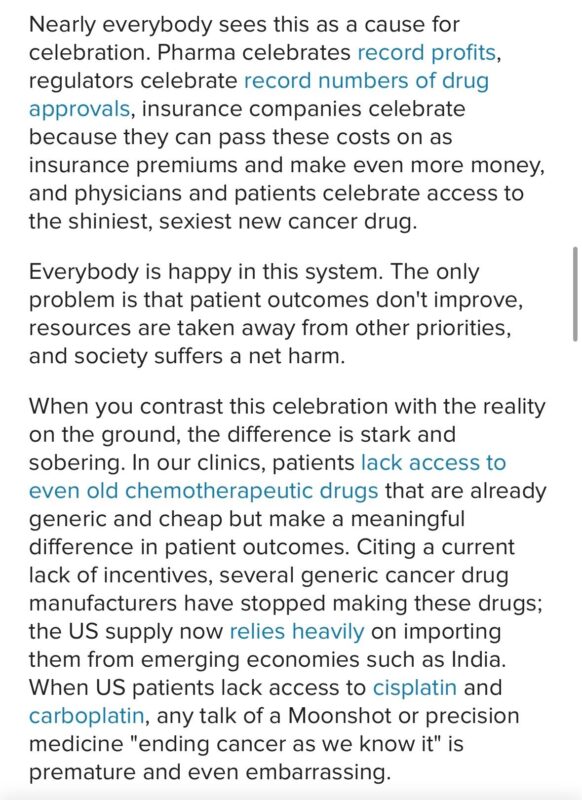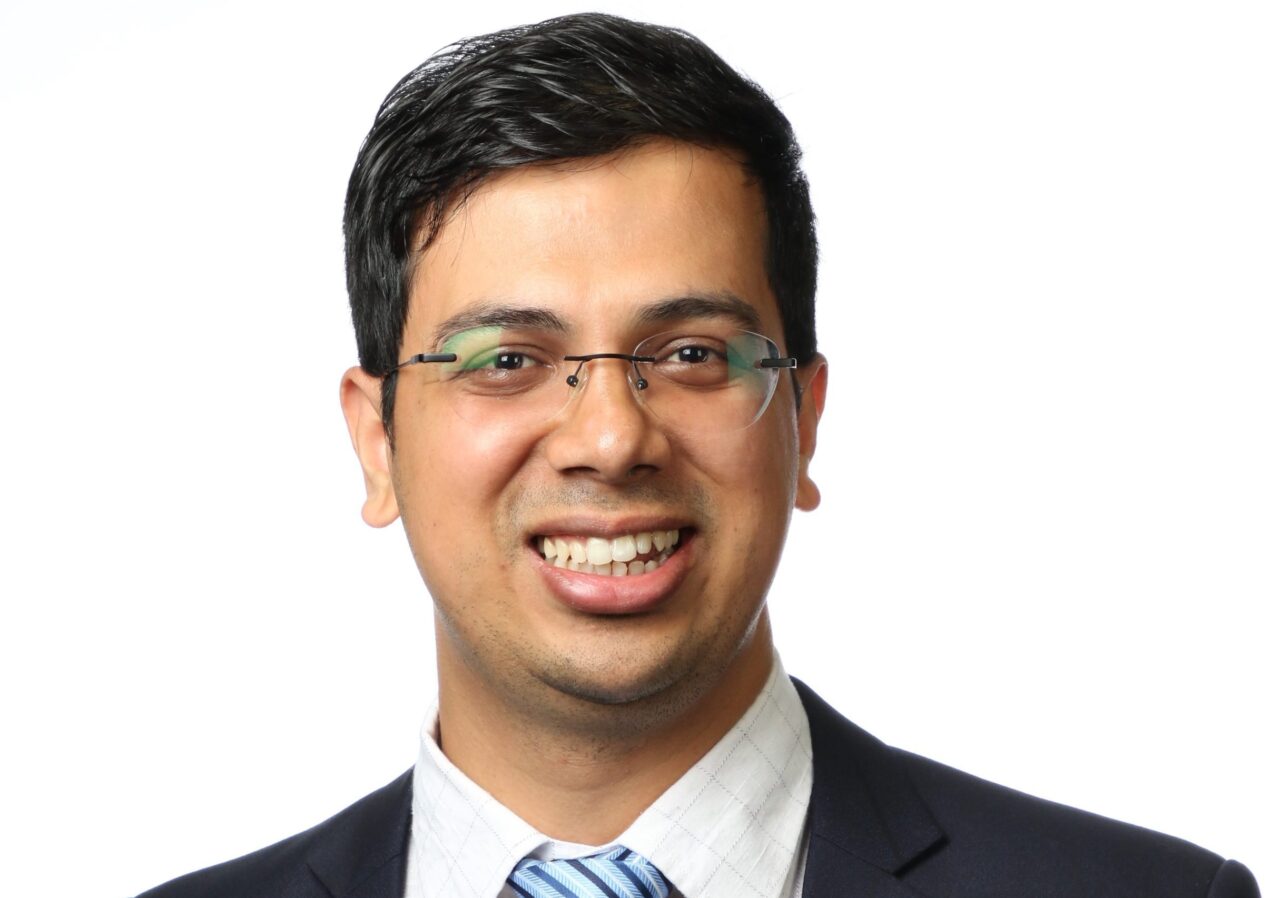Alvaro Carrascal, Assistant Professor at University at Albany School of Public Health, shared a post by Bishal Gyawali, Associate Professor and Medical Oncologist at Queen’s University, on LinkedIn, adding:
“As usual, insightful commentary from Bishal Gyawali.
‘Everybody is happy in this system. The only problem is that patient outcomes don’t improve, resources are taken away from other priorities, and society suffers a net harm.
When you contrast this celebration with the reality on the ground, the difference is stark and sobering. In our clinics, patients lack access to even old chemotherapeutic drugs that are already generic and cheap but make a meaningful difference in patient outcomes. Citing a current lack of incentives, several generic cancer drug manufacturers have stopped making these drugs; the US supply now relies heavily on importing them from emerging economies such as India. When US patients lack access to cisplatin and carboplatin, any talk of a Moonshot or precision medicine ‘ending cancer as we know it’ is premature and even embarrassing.’
There are no reasons to celebrate.”
Quoting Bishal Gyawali’s post:
“In my latest Medscape column, I discuss why ‘number of cancer drugs approved’ is a poor surrogate for measuring policy success.
Unfortunately though, when more drugs are approved- irrespective of the evidence base, quality, or magnitude of benefit from these drugs-everybody becomes happy.”

Further details.
Source: Alvaro Carrascal/LinkedIn and Bishal Gyawali/LinkedIn


